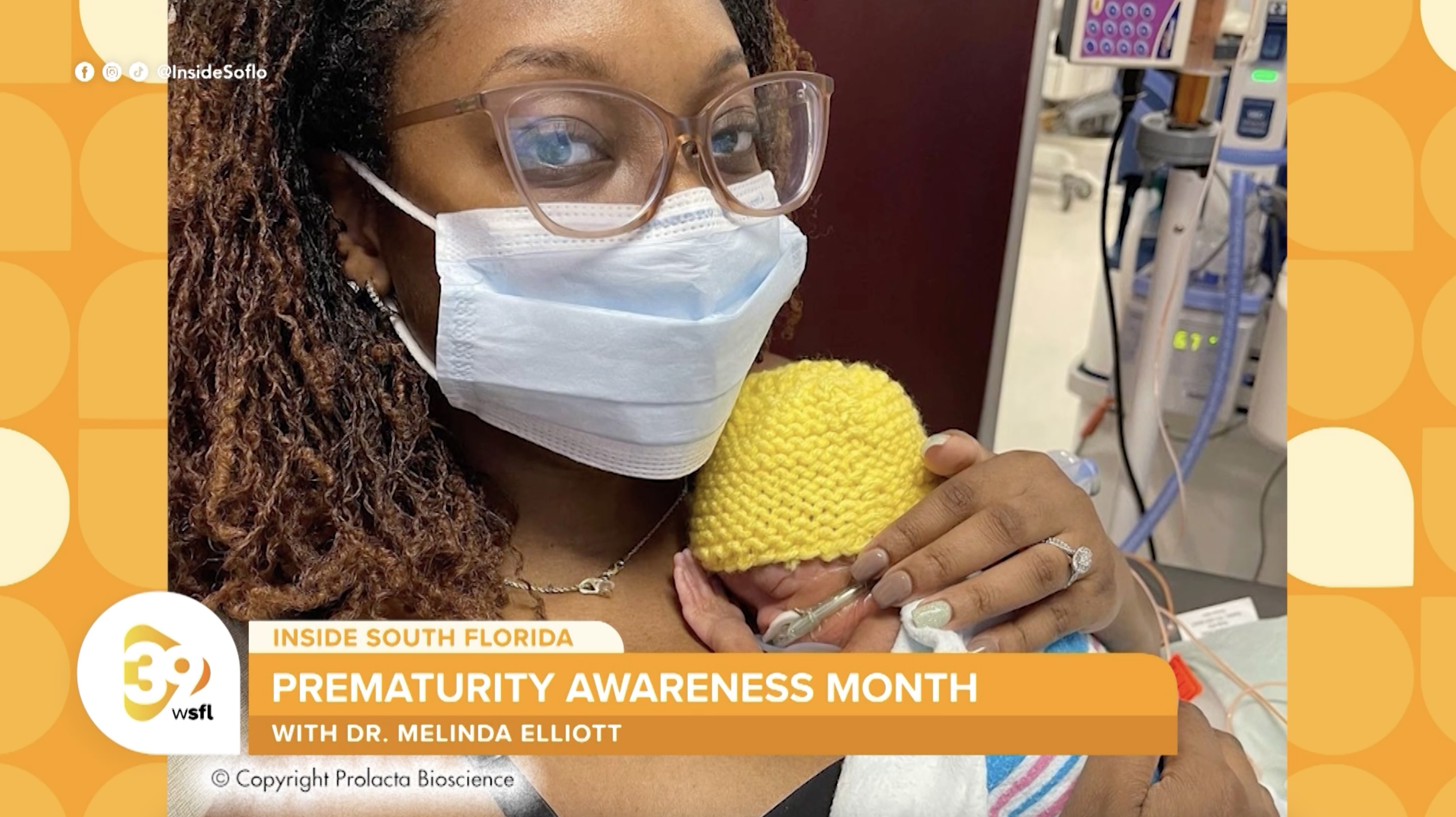Disclaimer: This Inside South Florida segment is sponsored by Prolacta Bioscience. All opinions and views are of the advertiser and does not reflect the same of WSFL-TV.
November marks Prematurity Awareness Month, a time to spotlight the needs of premature infants and the progress made in their care. Premature births affect one in 10 babies nationwide, and about 1% of newborns arrive more than three months early, weighing under three pounds and requiring highly specialized support.
One of the most significant advancements in preemie care has come from an unexpected place: nutrition. Early feeding decisions in the first days and weeks of life can dramatically influence long-term outcomes for these fragile infants.
Human milk remains the gold standard for all newborns, but premature babies have far greater nutritional needs than full-term infants, often requiring substantially more calories, protein, calcium, and phosphorus to support growth and organ development. When mother’s milk isn’t available or is insufficient, donor human milk is the next best option.
Because milk alone cannot meet the demands of very premature babies, NICUs rely on human milk fortifiers. While some fortifiers are made from cow’s milk, research shows that cow-milk–based products may increase risks of serious complications, including necrotizing enterocolitis. Human-milk–based fortifiers, like those produced by Prolacta Bioscience, have been shown to help preemies grow more safely and leave the hospital sooner.
Families and caregivers seeking more information can visit parents.prolacta.com, including a dedicated parent resource hub with guidance on feeding, pumping, and understanding nutritional options for premature infants.



